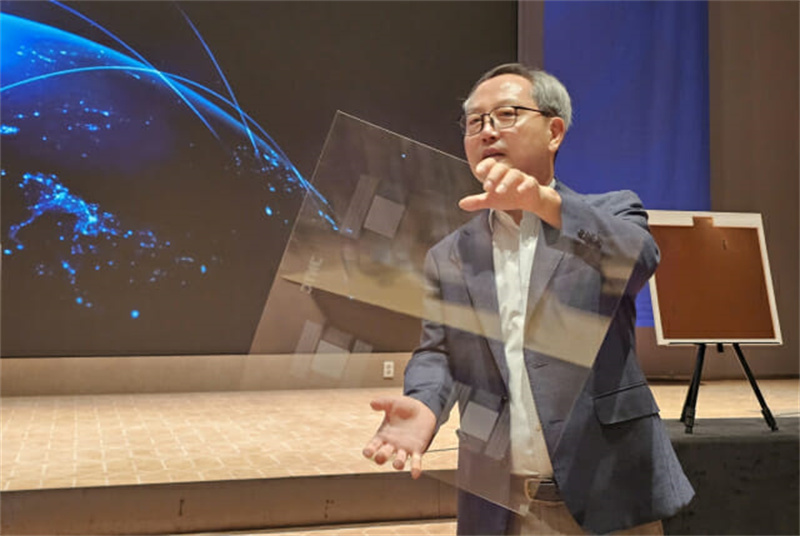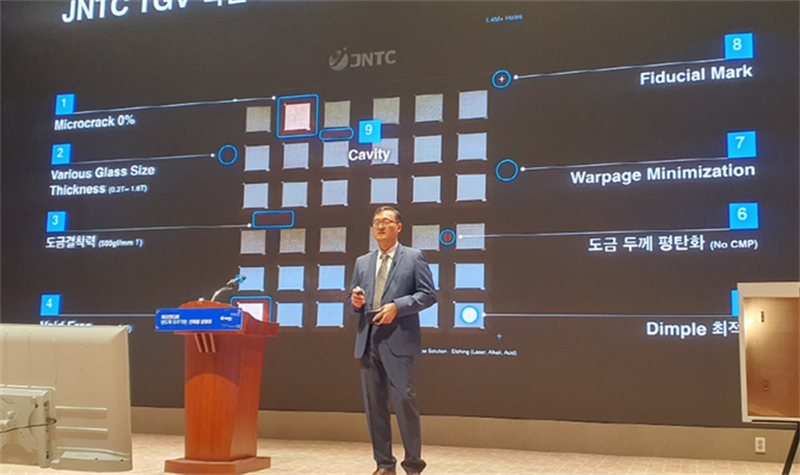South Korea's JNTC has completed the nation's first dedicated glass substrate plant for semiconductors, marking a significant step in next-generation AI packaging. The new facility, located in Hwaseong, is scheduled to complete equipment trials in July and begin mass production in August with an initial capacity of over 10,000 substrates per month. A second plant in Vietnam is under development, aiming to add another 30,000 monthly units, bringing total annual output to over 500,000.
At a product launch event in Seoul on June 30, JNTC CEO Nam-Hyuk Cho announced the company's official entry into the advanced packaging market with its Through-Glass-Via (TGV) substrates. He emphasized the company's vertically integrated, independent production system, which includes in-house design and manufacturing of most equipment. This has allowed JNTC to achieve production costs one-fifth that of industry peers and to price its substrates at approximately KRW 700,000 per unit—about one-third of competitors' prices.
JNTC's new TGV substrate addresses major limitations of plastic-based substrates by offering superior flatness, thermal stability, and structural reliability—critical for AI and high-performance computing (HPC) chips. The company has applied proprietary laser drilling and etching technologies to eliminate microcracks and voids during production, achieving over 90% yield for panels with up to 1.4 million holes.

The firm has signed NDAs with 16 global semiconductor players—including three IDMs, two OSATs, and several material and equipment partners—signaling growing industry interest. Full-scale revenue generation is expected from 2026 as customer validation progresses. JNTC's substrates have already passed key performance tests, including precise cavity formation required for packaging alignment.

With the rise of AI driving new demand for high-speed, high-bandwidth chip packaging, glass substrates are gaining traction for their superior electrical properties and cost-efficiency in large-panel production. Samsung Electronics has announced plans to adopt glass substrates starting in 2028, and other domestic players like Samsung Electro-Mechanics and LG Innotek are also entering the field, intensifying competition in Korea.
Founded in 1996 and listed on KOSDAQ since 2020, JNTC has specialized in reinforced cover glass for smartphones and wearables. In recent years, the company has diversified into automotive displays and semiconductor materials, identifying AI and autonomous driving as key growth areas.
By completing Korea's first glass substrate production line and securing a strong technology base, JNTC aims to position itself as a global leader in precision glass materials. “We have completed every aspect of the TGV process, from raw material processing to copper plating,” Cho said. “With our in-house control over every stage, we are faster, more secure, and more competitive.”
+86 191 9627 2716
+86 181 7379 0595
8:30 a.m. to 5:30 p.m., Monday to Friday
